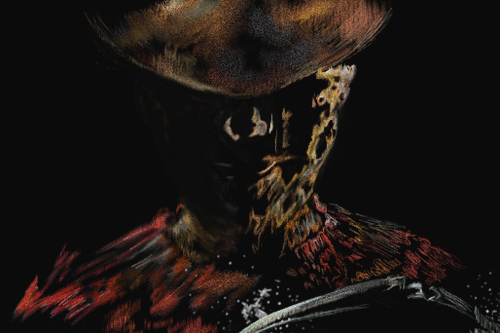Halloween has come and gone. Rewatching classics like Poltergeist or A Nightmare on Elm Street is but a distant memory. Nonetheless, scary movies remain. Browsing through Netflix last night, I found myself binging The Haunting of Hill House. I’ve always been drawn to the adrenaline of watching terror-inducing entertainment, but many feel the opposite. Personally, I find slasher movies that seem to lack in plot distasteful, but thriller, or suspense-driven movies, get high marks from me. Curious about what creates the divide between fright-fanatics and the dread-despisers, I researched what makes horror enthusiasts tick.
There have always been strong parallels between enjoying scary films and thrilling endeavors, such as skydiving and riding roller coasters. This may be due to what is known as Marvin Zuckerman’s sensation-seeking theory. Zuckerman describes sensation-seeking as a basic personality trait that is the pursuit of intense sensations and experiences for the sake of it. According to this theory, sensation-seekers tend to be drawn to scary movies because of the adrenaline rush gained from the film. On the other hand, people who are prone to over-stimulation would be more likely to experience an aversion to horror. The wiring of a person’s brain attributes to their feelings toward the horror genre.
Another reason you may be a attracted to gore and terror is the way your body manages stress. Margee Kerr, a sociologist, states that watching scary movies or shows boosts your heart rate, raises adrenaline, and makes your body want to release energy. The way we react to this experience is what sets people apart. Some feel that this is a grounding experience that ‘makes them feel alive.’ I would fall into this category; the rush after a good scare is almost calming, tuning out any other stressors I may be facing. On the flip side, many experience this reaction like a panic attack and feel a loss of control over their body. Surprisingly enough, a lot of people with anxiety find that scary movies are somewhat therapeutic for them. Dr. Mathias Clasen says that “Exposure to horror films can be gratifying when the negative emotions caused by the film are manageable…The genre allows us to voluntarily—and under controlled circumstances—get experience with negative emotion.”
Scientists and psychologists have many theories on the appeal of scary movies. In fact, people spend their whole lives researching it. I wanted to hear the reasoning for dislike of horror movies from people I know in real life. MHS student and fellow reporter Sophia Piper is a staunch loather of anything horror. Piper says, “I tend to turn the events in the movies into irrational fears and I hate getting jumpscared.” I can’t say I experience this, but I understand the point. One comment Piper made that I sadly must agree with is that most scary movies are terribly executed. Although this is true, I enjoy them nonetheless. Currently, we don’t know that much about the science of our reactions to horror. Many incomplete theories surround the topic, but it intrigues me greatly to discover the facts behind our preferences. Hopefully, more research on this topic will be produced in years to come. Until then, watch at your own risk.

